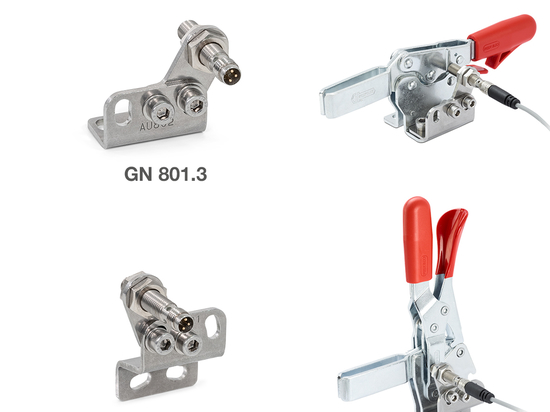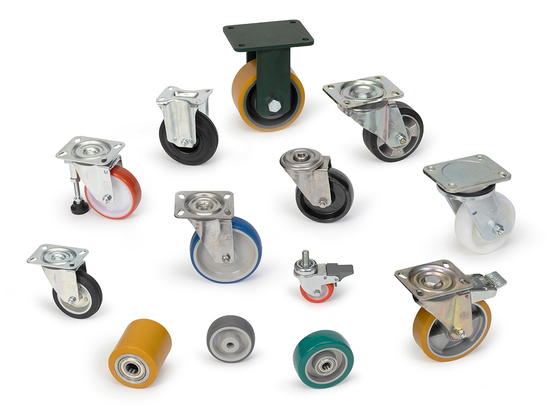
#Product Trends
Clean latches
With parts to which hardly any dirt clings and that can be cleaned in place, there is less need to spend time and money on cleaning and cleaning media. This also translates into an increase in reliability for the production systems.
With the latches GN 1150 in Hygienic Design, Ganter provides support for the machine and system cleaning concept known as clean in place, or CIP for short.
Even outside of the industries that must traditionally comply with high standards of hygiene, the concept of clean in place, meaning the cleaning of components while still fully installed, is becoming ever more common. The idea is that if systems, fixtures or machines can be cleaned more easily and more quickly, this lowers the operating expenses in particular. This is why Ganter is continuously expanding its portfolio of standard parts in Hygienic Design (HD).
The most recent HD standard part, GN 1150, refers to cam latches of stainless steel with special FDA-compliant seals of EPDM and TPU. Thanks to these seals, the latches have no dead spaces where dirt could collect. When the latch arm is turned by 90 degrees, its beveled surfaces produce a tension that reliably presses covers, hatches, doors or covers against their opposing element (frame or body). The rotational movement is currently achieved with a simple blue plastic key featuring a socket with two wrench surfaces, which is available as an accessory under the designation GN 1151. Additional drive types are currently under development.
The standard part GN 1150 is itself available in two versions: The “front hygiene” version (FH) offers the HD standard on the actuation side, while the inside satisfies the typical requirements. Applications for this part include, for example, switch cabinets that must comply with hygiene requirements only on the outside. On the other hand, the “full hygiene” design (VH) features additional seals for HD quality even on the latch arm side.
Both versions offer protection class IP 66 according to DIN EN 60529, meaning that they protect against the ingress of dust and heavy streams of water from any angle.
The two standard parts are especially long-lasting thanks to a carefully developed design. The seals are also available in other materials upon request, allowing the parts to be adapted to customer-specific media exposures.





